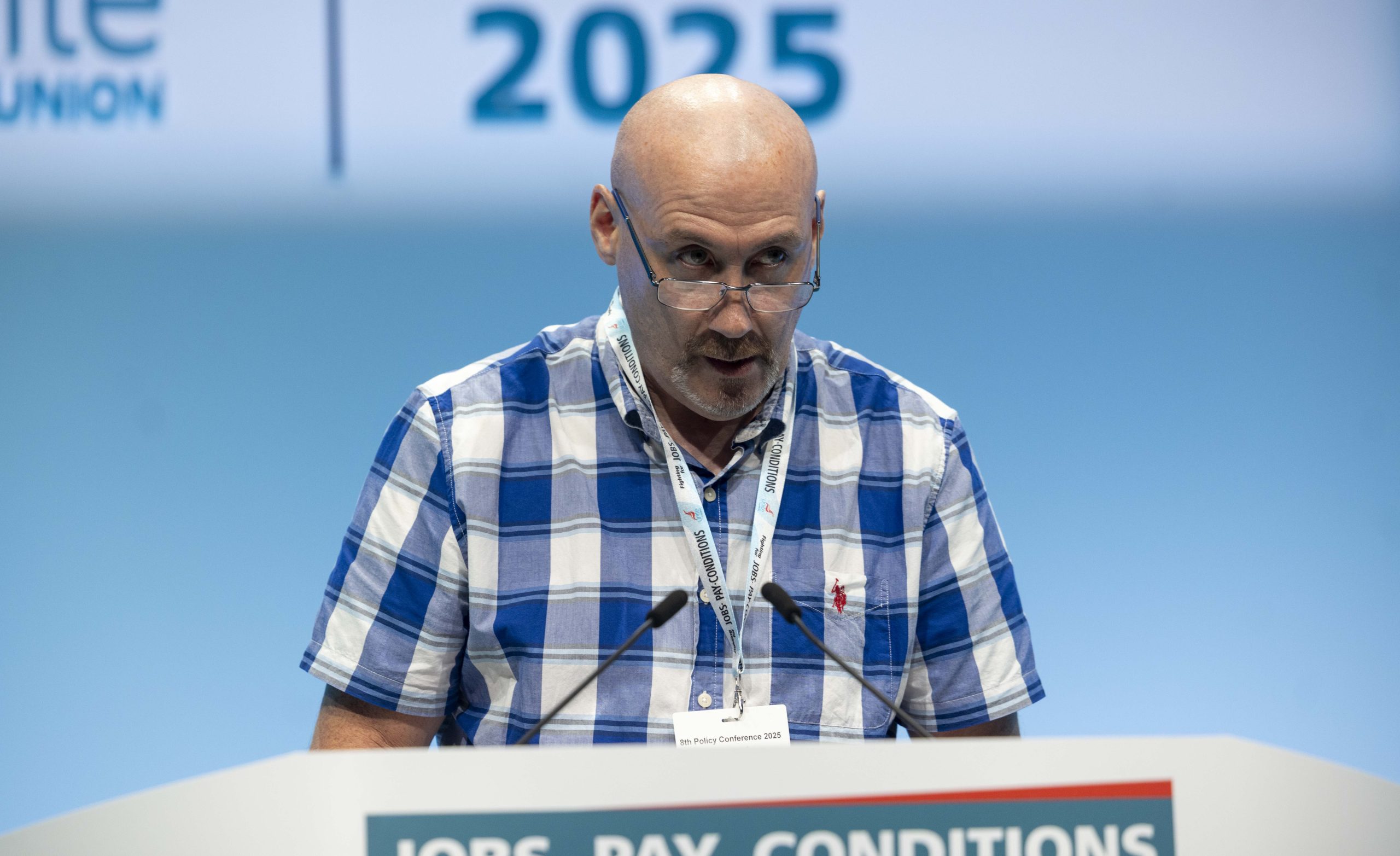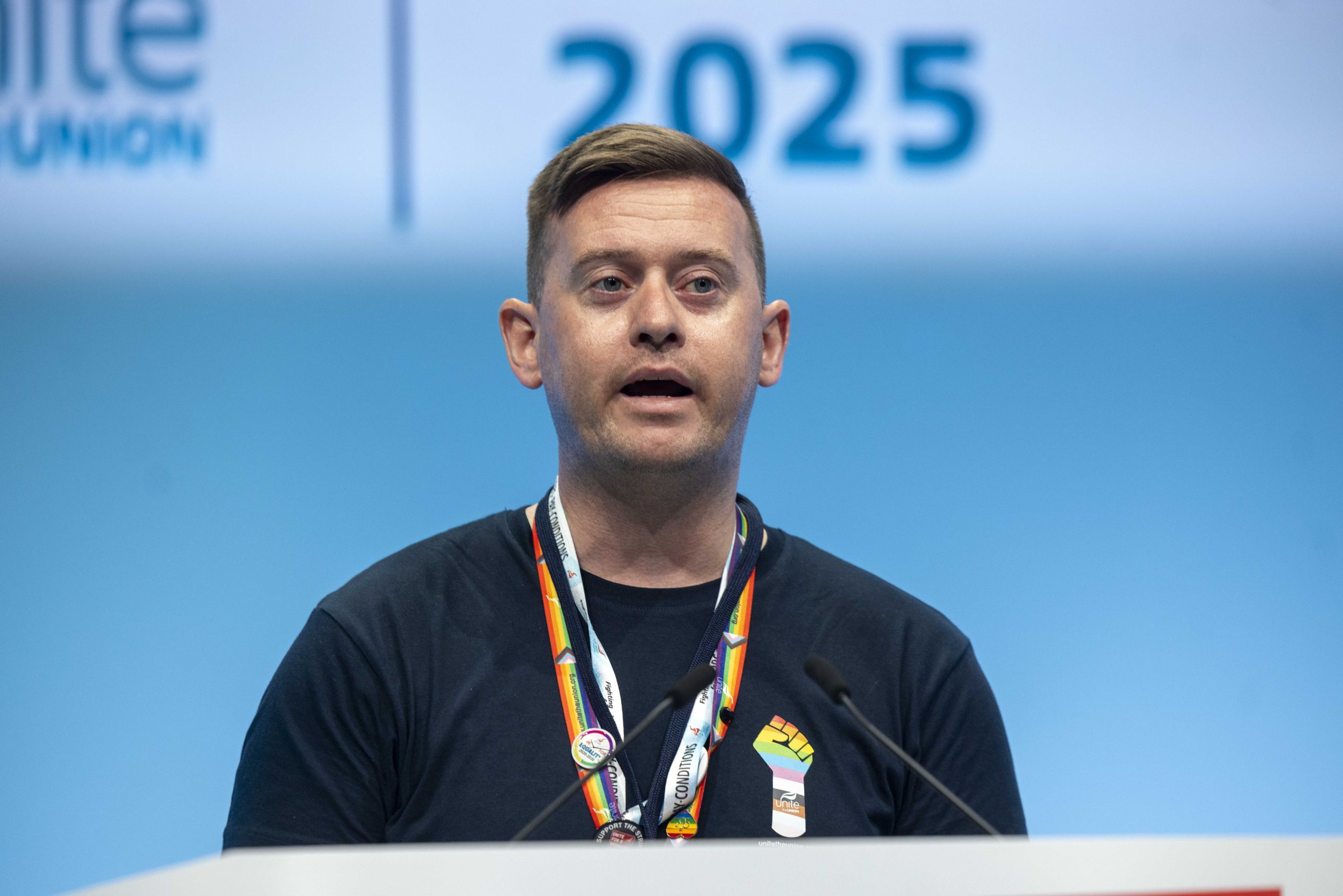Save our NHS
Unite delegates call for end to NHS cuts and privatisation
Reading time: 5 min
The future of the NHS was at the top of the agenda in a debate on the first day of Unite’s policy conference on Monday (July 7).
Delegates who spoke in the debate all denounced the widespread privatisation threatening the NHS very existence. They also emphasised the importance of pay restoration for NHS workers, and many shared heartbreaking personal stories of their experience with a health service on its knees.
Unite delegate Brian Martin of the Republic of Ireland moved a motion on public health services, highlighting how the Republic “still does not have universal health care, free at point of delivery”.

“The Republic’s health service has been increasingly resourced to the private sector, cutting public waiting lists and reducing treatment,” he noted.
“Whether in Britain or Ireland, the creeping privatisation of healthcare, the outsourcing of public services providers, puts further strain on the healthcare system and its workers”, Brian added.
Seconding the motion was Brendan Donnelly of Northern Ireland, who recounted how his mother had suffered a stroke and received live-saving world-class care despite the enormous pressure facing overworked and underpaid NHS staff.

Despite the severity of her stroke, Brendan’s mum failed to receive an adequate care package after she was discharged from hospital, and family members were forced in some cases to take unpaid leave to care for her themselves.
“The damaging and detrimental impact on the health service from outsourcing to the private sector cannot be overstated,” Brendan noted. “The sad fact is that my mother was one of the lucky ones in the postcode lottery.”
Later in the debate, Unite delegate Len Hockey of Barts Health Trust moved a motion on saving the NHS.
“Change was the mantra – we were told that the NHS was broken; that it had to be fixed,” Len said. “But what does this fix looking like? A merger of NHS England with the Department of Health and Social Care will see a 50 per cent cut in jobs in both organisations. Integrated care boards will reduce costs, again by 50 per cent. All NHS providers to reduce corporate cost growth by 50 per cent — and in short order. Over a third of organisations say they are cutting clinical posts to balance their books.”
Len denounced what he called “an ongoing and unrelenting embrace of neoliberal ideology”, with “taxpayer money continuing to find its way in the profit margins of an elite class that has the sixth richest economy in the world. An elite – who according to the Sunday Times rich list – has an asset value of £772bn among 350 families”.
He compared this exorbitant wealth to NHS workers on the lowest pay bands, many of whom are struggling on bare minimum pay. Len said that the status quo under a Labour government was not a ‘mistake’ or ‘a misstep’, but rather a “deliberate, considered attempt to make ordinary working people for a crisis that they did not create”.
Unite delegate Stanley Mukassa of London & Eastern seconded the motion, as he shared a personal story of his neighbour whose pain was so she couldn’t bare suffering on an NHS waiting list for surgery. Instead, she opted to go private, which wiped out her life savings.
In a later motion on the NHS, mover Tyrone Falls of the South West region decried cuts to education in the NHS. Unite delegate Elain Quail from Scotland also spoke in the debate, emphasising the need for NHS pay restoration and the abolishment of the Pay Review Body (PRB) in England, which blocks health workers from negotiating on pay.
All three motions were carried.
By Hajera Blagg
Photos by Mark Thomas



